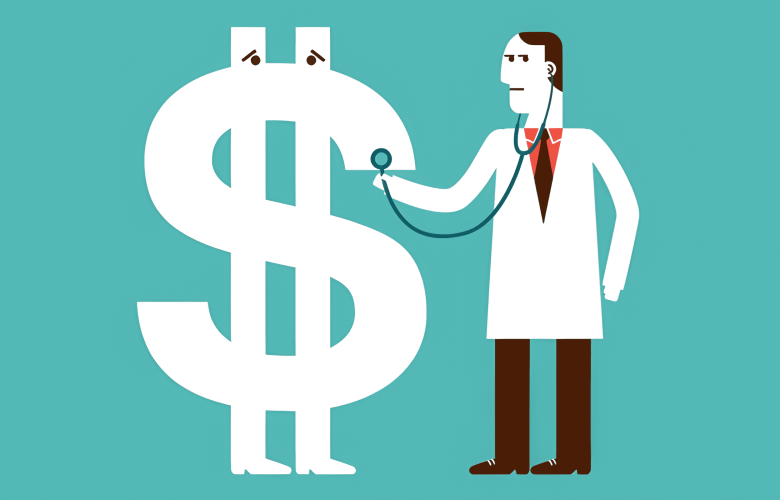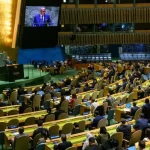What is more tangible than the right to health? Health is immediate and demanding. Sickness distorts our reality and makes us question our delusional internal conceptions of immortality. Perhaps that’s why people are the most irritable at hospitals. Most of us have felt the zest of life after emerging from a bout of illness. Now think about it from another angle. What if you couldn’t find the services required for your recovery? What if your entire reality becomes the sickness, the disease? Better yet, what if there was a vast international structure built around the mission of keeping you in a perpetual state of ill health? This situation isn’t hypothetical. It forms the core of the reality for many Africans. Health in Africa is akin to the numerous resources found on the continent — perpetually fleeting and indiscriminately plundered. These disquieting structures restlessly conspire to undermine the collective health of an entire continent as they obfuscate their activities through anachronistic interpretations of human rights. The cancerous Western economic policies imposed on African nations perpetuate sickness as they continue to enrich the wealthy nations and actively undermine the rights of African people to health.
In 1948, the international community produced the Universal Declaration of Human Rights (UDHR) — putting forth a list of rights they considered to be universal and inalienable. Article 25 of the declaration codifies the right to health as part of the spectrum of human rights. One might ask why 1948 was the year to codify such a document, but we only need to go back a few years to find the reason. The brutality of the Second World War, coupled with the Holocaust, had shocked the West into re-evaluating how its various de facto ‘member states’ were treating each other. One might argue these rights were put forth as a way of affirming Western humanity to the Western world. Now these intentions were never explicitly stated but the track record of the global order since then has shown the application of these rights to be limited in non-Western nations — often actively thwarted by the efforts of the very countries that ostensibly champion the great cause of human rights. The very nations that ratified the convention had colonies and continued their direct regime of brutality for years, a legacy that lives on today. When the French president starts preaching about human rights, is anyone deluded enough to believe they’re talking about any of the people in the Sahel that France continues to brutalize? I hope not. Even within the Western nations themselves, these rights did not apply to minorities and people of color. The United States — the champion of the critical document — did not extend any of these rights to African Americans, and only recognized their civil liberties in the 1960s, more than a decade after the convention was inked. Statements such as ‘We are all born free’ and ‘We all have our own thoughts and ideas and we should all be treated the same way’ ring hollow because they fail to explicitly state who the ‘we’ refers to.
Right about the time the UDHR was born, two Kafkaesque, Neo-liberal International Financial Institutions (IFIs) rose to prominence — the World Bank and the IMF. These institutions were on hand to offer financing to the newly fledgling African countries emerging out of liberation struggles. Most of their economies were decimated and the leaders were looking for loans to finance their promises — something that became even more pressing following the 1980s economic crisis. Much of this money came from the two IFIs along with conditions called Structural Adjustment Policies (SAPs).
These draconian stipulations were ostensibly meant to avoid debt default and forced the governments, among other things, to severely reduce public sector expenditure and favor private sector investment. Experience since then has shown that despite applying these measures, debt usually skyrocketed with economic deterioration and breathtaking inequality. This had direct consequences on the countries’ abilities to finance health — there was less money to train and pay healthcare professionals, build hospitals, produce/procure drugs, and provide anything that can be considered quality healthcare. Funds for healthcare sector investment were usually kept at 5 USD per capita (vs 10,224 USD for the US). Absurd.
Let’s take Malawi as an example. As a recipient of loans in 1981, it applied SAPs with enthusiasm, being branded as a ‘strong adjuster’ by the World Bank. However, the adoption of these policies, coupled with all the other stipulations of the free market, resulted in drastic decline of healthcare provision, massive health worker layoffs, and shortage in free public health care to the ones who need it the most — the proliferation of private clinics in such settings only helps to service the poor, further exacerbating the inequitable divide. This story is repeated in many poor African countries.
The West’s narrative about health on the continent frames the situation as a fixed issue independent of context and history, often fixed locally and expected in the grand scheme of things. What is Africa but a patchwork of failed states and corpulent leaders? There is no context. The reality of colonial impact is largely forgotten. The continued pillaging and extraction of wealth — something that would’ve helped fund health — is glossed over. Illness is seen as an ingrained component of African identity. Doesn’t your soul wither when you hear a recently arrived white person in the quest fulfilling their dream of helping the poor and dying utter with little irony ‘I don’t know why the mothers don’t keep their babies clean! I mean, you could just solve diarrhea with soap and water’? These permeating portrayals deflect conversation away from the real economic and political structures that perpetuate suffering on the continent by exclusively and falsely placing the blame at the feet of Africans.
The extant and ubiquitous narrative also falsely presents empty explanations about how African nations are simply in a stage of their development where they can’t afford adequate care or that corruption of the governments creates inefficiencies. But the reality is that the adoption of Neo-liberal economic policies has had a deleterious impact on health care both directly, as stabbed above, and indirectly through the disastrous destruction of agricultural sectors and continued siphoning-off of African wealth to finance Western development.
The only way Africans can attain health is by treating the absence of care as a political issue with political solutions and by independently redefining and extending the right to health, and by extension human rights, to Africans. The fact that there is no accountability to the active undermining of rights and health by Western forces necessitates the rejection of the ‘liberal’ definition of human rights that clearly do not include Africans. This crystallizes the need to properly define and codify human rights from an African perspective, as a counter to the often-unchecked impunity. When your loved one falls ill and you can’t find quality care, the proper response shouldn’t be dejection or hopelessness, but radicalization and political organization.





